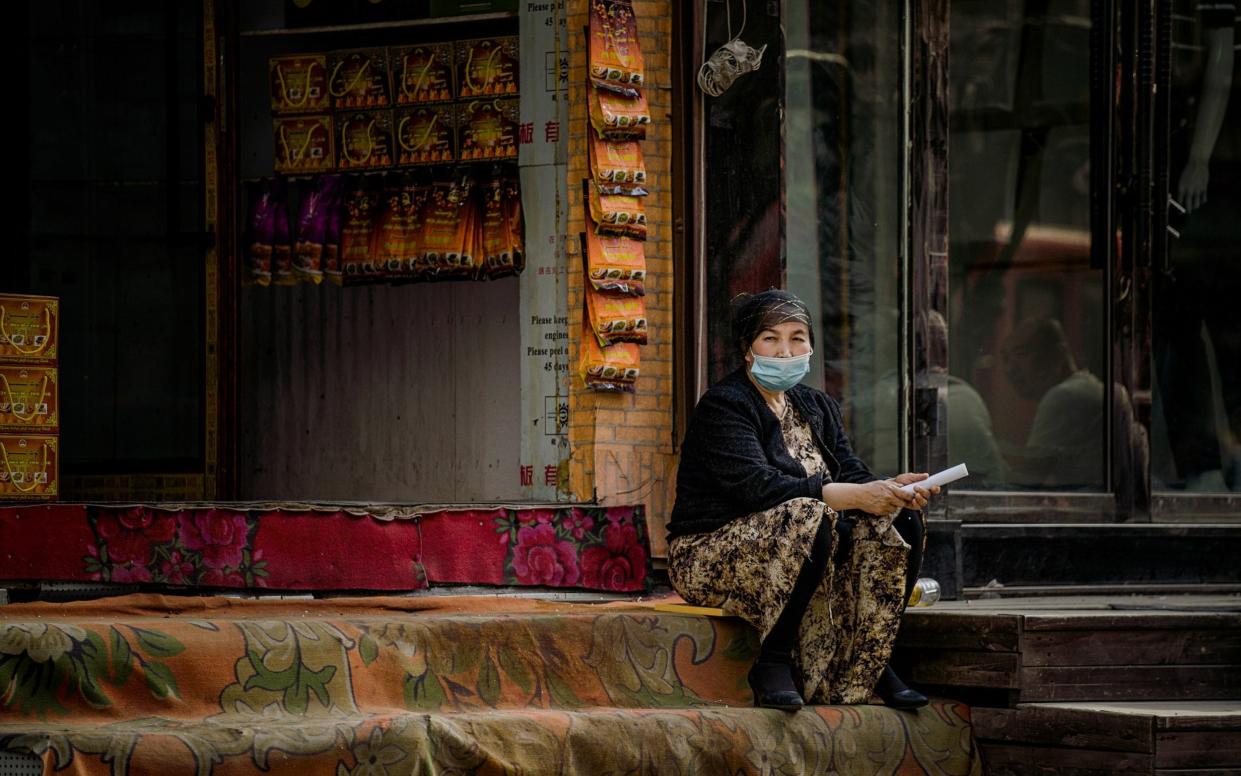Uyghurs and Tibetans locked out of Airbnb in China's latest crackdown on ethnic minorities

Accommodation listings on Airbnb in China at times explicitly ban ethnic minority groups such as Uyghurs and Tibetans, a move that rights groups say run counter to the company’s non-discrimination policy of “inclusion and respect.”
Some properties also exclude renters from politically sensitive places including Hong Kong and Macau, where China has been working to snuff out opposition, and Taiwan, a democratically-governed island with its own leader, currency, and military that Beijing deems a runaway province.
“This apartment is not able to receive Uyghur visitors due to restrictions by the local police,” reads one listing for a place in Sanya, a resort town on an island in southern China.
Another listing for the city of Chongqing says that it’s not able to “receive foreigners, visitors from Hong Kong, Macau, Taiwan, Xinjiang and Tibet.”
Ethnic minorities from Tibet and Xinjiang, where most Uyghurs in China reside, “should contact us in advance,” writes another Airbnb host for a place in the coastal city of Qinhuangdao.
These details are peppered within descriptions from hosts that list other basic house rules and information about the properties, such as “no pets,” “no smoking,” “free toiletries,” and “hair dryer available.”
The Chinese government has ramped up a crackdown against ethnic minority groups, including Uyghurs and Tibetans, and has also exerted pressure in Hong Kong and Macau, as well as over Taiwan.
Mass arrests. Newspaper raids. Banned protests. Exiled activists. The Telegraph's new podcast, Hong Kong Silenced, documents how life in the city has been turned upside down in the past year. Listen to all episodes now on wherever you get your podcasts. telegraph.co.uk/hksilenced
Human rights violations in Xinjiang – where more than one million Uyghurs are estimated to have been detained in ‘re-education’ camps – have been so severe that the UK, US, EU and Canada announced coordinated sanctions against Chinese officials in March.
As such, rights groups have been calling for companies to rethink their footprint in China.
Firms like Airbnb, a corporate sponsor of the 2022 Winter Olympics, to be held in China next February, have come under additional pressure to pull their support for the Games.
On Tuesday, the US Congressional-Executive Commission on China will hear testimony from American firms sponsoring the Olympics including Airbnb, Coca-Cola, Intel, Visa and Proctor & Gamble, a major consumer goods company that makes everything from Tide laundry detergent to Crest toothpaste.
“The fact Airbnb is still deciding to go ahead and sponsor the Olympics should make users question whether Airbnb’s values of inclusion and diversity truly are universal or only apply in regions where that’s popular socially, where it’s considered trendy to be inclusive,” said Pema Doma, campaigns manager at Students for a Free Tibet, an advocacy group.
Airbnb is “contributing to furthering the repression,” said Zumretay Arkin, program manager at the World Uyghur Congress. “It would be unacceptable in the US, or any other country, if for example Airbnb banned black people from booking their listings.”
“Uyghurs are already very limited in their freedom of movement; many of them don’t have passports,” she said, adding that “discriminatory listings” create yet another hurdle.
Airbnb said in a comment to the Telegraph: "Everyone who uses Airbnb must agree to our Community Commitment and we apply these standards around the world, including in China.
"Language in listing descriptions that discriminates against members of different minority groups is an unacceptable violation of our Community Commitment and we take action to address it.
"We regularly scan for discriminatory language in China, and where we encounter hosts who are unwilling to remove the language or abide by our Non Discrimination Policy, we have and will remove their listings or accounts."
For Uyghurs, travelling domestically can mean getting approval from the police and constant monitoring while on the go, while travelling internationally has before been enough to land a person in a detention camp, based on former detainees’ testimonies as told to the Telegraph.
There’s a “tendency from companies like Airbnb to say ‘we’re just following local laws,’ but what happens when those local laws directly discriminate and violate the rights of certain ethnic groups or people, like Tibetans and Uyghurs?” said Ms Doma.
“There is clear responsibility for domestic and foreign firms under the UN’s guiding principles on business and human rights to ensure their business practices don’t create or contribute to human rights violations, like discrimination on the basis of ethnicity, and if and when they find it, they are expected to provide some kind of remedy,” said Sophie Richardson, China director at Human Rights Watch.
Airbnb first entered the China market in 2015, and has encountered a number of challenges since as detailed in documents filed by the firm before listing publicly in New York last year.
One issue was how Airbnb would balance the Chinese government’s data-sharing requirements with consumer privacy concerns, which eventually led to one executive resigning, according to a report by the Wall Street Journal.
Airbnb has previously noted before going public that it would be difficult to be profitable in China.
The company website details a nondiscrimination policy saying it's “committed to building a world where people from every background feel welcome and respected, no matter how far they have traveled from home.”
The policy also says that the company recognises “some jurisdictions permit, or require distinctions among individuals based on factors such as national origin, gender, marital status or sexual orientation, and it does not require hosts to violate local laws or take actions that may subject them to legal liability.”

 Yahoo News
Yahoo News 
